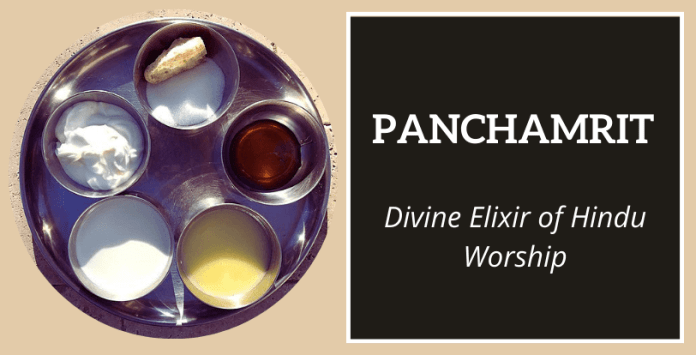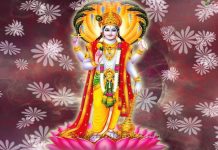Panchamrit, the sacred blend of five nectars, holds a revered position in Hindu rituals and worship practices. Translating to “Five Amrits” or “Five Nectars” in Sanskrit, Panchamrit is not just a mixture of ingredients but a symbol of purity, devotion, and spiritual nourishment. Across the diverse landscape of Hindu culture, Panchamrit serves as a divine elixir, enriching religious ceremonies and festivals with its auspicious presence and profound significance. This article delves into the origins, symbolism, rituals, and spiritual significance of Panchamrit, exploring its role as a cornerstone of Hindu worship.
Origins and Symbolism:
The origins of Panchamrit can be traced back to ancient Hindu scriptures and mythology, where it is mentioned as an offering to gods and goddesses during religious ceremonies and rituals. The five ingredients of Panchamrit—milk, yogurt, honey, ghee, and sugar—hold deep symbolic significance, representing various divine attributes and cosmic elements. Milk symbolizes purity and fertility, yogurt represents strength and prosperity, honey signifies sweetness and bliss, ghee embodies purification and illumination, while sugar represents harmony and auspiciousness. Together, these ingredients form a sacred blend that epitomizes the divine abundance and blessings bestowed by the gods.
Rituals and Offerings:
Panchamrit plays a central role in Hindu worship ceremonies, where it is used as an offering to deities in temples, shrines, and home altars. The preparation of Panchamrit involves mixing equal parts of milk, yogurt, honey, ghee, and sugar in a ceremonial vessel, often adorned with floral decorations and sacred symbols. This divine concoction is then offered to the deity by anointing the idol or sacred symbol, symbolizing the infusion of divine blessings and auspiciousness. Devotees partake in Panchamrit as prasad, sanctified food blessed by the deity, believing it to bestow divine grace, protection, and prosperity upon them.
Spiritual Significance:
Beyond its ritualistic use, Panchamrit holds profound spiritual significance in Hindu philosophy and practice. The five ingredients of Panchamrit represent the five elements of nature (Panchabhutas) and their corresponding deities, symbolizing the interconnectedness of the cosmos and the divine order. By partaking in Panchamrit, devotees seek spiritual nourishment, purification, and communion with the divine. The act of offering and consuming Panchamrit fosters a sense of devotion, reverence, and gratitude towards the gods, deepening the spiritual bond between the worshipper and the divine.
Cultural Traditions and Festivities:
Panchamrit is an integral part of various Hindu festivals and celebrations, where it is offered as prasad to devotees as a symbol of divine blessings and auspiciousness. During religious processions, temple rituals, and festive occasions, Panchamrit is distributed among devotees as a sacred offering, fostering a sense of communal unity and spiritual communion. The tradition of offering Panchamrit has been passed down through generations, preserving ancient rituals and customs that enrich the cultural tapestry of Hinduism.
Ayurvedic and Therapeutic Benefits:
In addition to its religious significance, Panchamrit is valued for its therapeutic properties in traditional Ayurvedic medicine. Each ingredient of Panchamrit—milk, yogurt, honey, ghee, and sugar—is renowned for its nutritional value and health benefits. Milk and yogurt provide essential nutrients and probiotics, honey is known for its antibacterial and healing properties, ghee is revered for its digestive and immune-boosting qualities, while sugar serves as a natural source of energy and sweetness. When combined, these ingredients form a potent elixir that promotes overall health and well-being.
Conclusion:
Panchamrit, the divine elixir of Hindu worship, encapsulates the essence of purity, devotion, and spiritual nourishment within the rich tapestry of Hindu culture and spirituality. Through its sacred ingredients and profound symbolism, Panchamrit serves as a conduit for divine blessings, fostering a deeper connection between devotees and the gods. As devotees partake in the offering of Panchamrit, they are reminded of the eternal abundance and grace bestowed by the divine, guiding them on the path of spiritual awakening, fulfillment, and divine communion.



























































